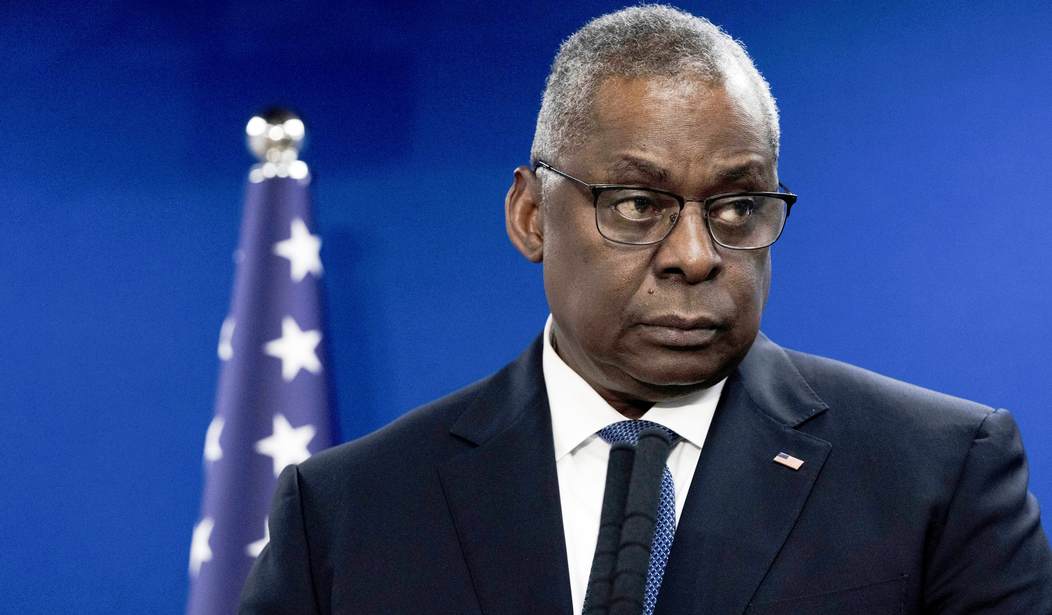Lloyd Austin giveth, Lloyd Austin taketh away, Lloyd Austin ... forced to giveth back? On the 23rd anniversary of the 9/11 attacks, the New York Times offers some bad news on the lawfare front against the mass murderers that plotted and funded the worst terror attack on the US.
Five weeks ago, Austin's commanding officer in charge of military courts got relieved after approving a plea deal with the trio, including mastermind Khalid Shaikh Mohammed. Austin then ordered the plea deals revoked, sending the cases back to the Guantanamo Bay courts created in a series of legal spasms during the Bush administration to deal with these defendants. Some wondered at the time whether Austin had the authority to undo a deal that the court had already accepted.
As it turns out, the court wonders that, too:
Mr. Austin declared that his only motivation was to make sure there would eventually be a trial for the man accused of masterminding of the attacks, Khalid Shaikh Mohammed, and his co-defendants.
But his decision left the military judge in the case with a series of questions to resolve. Do the rules allow Mr. Austin to revoke an agreement after it was signed, sealed and delivered to the court? Or did he act too late? Did the manner in which he did it create the appearance of unlawful influence?
Or at least the defense attorneys assigned to the case want the court to rule on it:
Defense lawyers for the three men who signed the agreement argue that Mr. Austin acted too late, and that the plea agreements are essentially still valid contracts. ...
To assist in deciding that question, the judge has asked the lawyers a series of technical questions about which rules, if any, allow a defense secretary to “withhold and reverse, or otherwise alter,” a lawful action by the overseer of the military commissions.
This all sounds preliminary at the moment, but it is not an issue that will go away on its own. In a normal civil court, a plea agreement between prosecutors and defendants becomes official once accepted by the court. The most recent example of one that got rejected is Hunter Biden's scummy plea-deal arrangement with the special counsel, which smelled so bad that the judge refused to accept it -- and even then, his defense attorneys fought to force the prosecution to abide by it. Had the judge accepted it, however, there would be no way for Merrick Garland (the analog to Austin in this example) to revoke it.
The military has different rules than the Department of Justice, of course. However, that's less true in these Gitmo prosecutions, which have been forced into more of a criminal-court paradigm by political interests since the capture of KSM and other 9/11 figures. This has created an enormous amount of headaches for the resolution of these cases, especially given that these defendants were subjected to "enhanced interrogation tactics" to get their confessions and other actionable intelligence. That makes such evidence all but inadmissible in court, and in fact that issue is still unresolved. The upcoming pretrial hearings are dealing with other ramifications of that history, including motions for dismissal by the defense on the basis of "outrageous government conduct."
And this is where the whole mess around the plea deal begins to look suspicious on its own. The plea deal would have ended all of these issues, and even allowed the judge to consider the confessions in sentencing hearings. The only concession made by the DoJ in that deal was to take the death penalty off the table, meaning these defendants would end up spending the rest of their lives in a Supermax facility, probably in Florence, CO. Of course, any such deal that spares the lives of people who helped murder 3000 Americans would be a political disaster -- which is why Austin pulled the plug when the news got out.
But ... suppose Austin knew he'd acted too late to actually stop the deal? And suppose that was the plan all along? That would allow the cases to come to an end, and give Joe Biden (and now Kamala Harris) enough plausible deniability to shrug off the political consequences. Or at the very worst, the buck could stop with Austin and leave Biden-Harris hands looking clean.
One can waste hours spinning these speculative theories, of course. But the hard truth is that these cases became impossible the moment that the Supreme Court decided that military tribunals in wartime were unconstitutional, an absurdity given to us by Justice John Paul Stevens. Congress then had to act, and insisted on grafting civil procedures onto a process that a regular military tribunal was far better equipped to handle. That decision got made within a few years of 9/11, when we all should have realized the folly of dealing with a war by terrorists as a law-enforcement problem. Had we remained firm in our resolve to treat war like war, these defendants would have ceased to exist two decades ago, and that result would have been more just than anything that has followed since.
Unfortunately, it's too late now to rectify this situation. The DoD can't hold a credible criminal trial that could result in a conviction, or that would have happened long ago. The Supreme Court made it impossible to go back to military tribunals, and domestic politics would never countenance an effort to re-establish their legitimacy. Either we cut a deal for guilty pleas and life sentences, or we just leave this process in stasis until all of the 9/11 plotters die of natural causes. It will be the same outcome with the only difference being location and cost ... and futility.








Join the conversation as a VIP Member